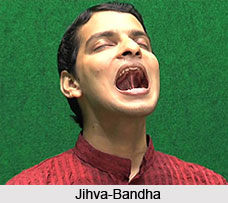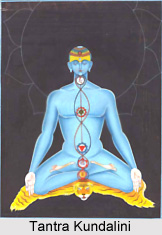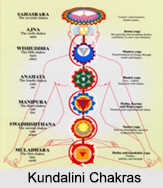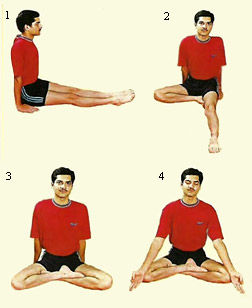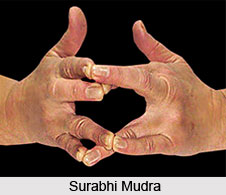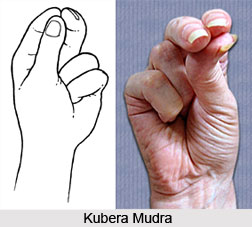This sutra guides those elevated souls who have attained a certain level in samadhi, to intensify their sddhana, with redoubled confidence, power, awareness and devotion. Sage Vyasa calls this state upaya pratyaya.
sraddha trust which comes from revelation, faith, confidence,
reverence
virya vigour, physical and moral strength, mental power,
energy, valour
smrti memory, recollection
samadhi profound meditation, supreme devotion, identification oft he contemplator with the subject of contemplation, perfect absorption of thoughts
prajna awareness of real knowledge acquired through intense
contemplation
purvakah previous, prior, first
itaresam another, rest, different from, whereas
Practice must be pursued with trust, confidence, vigour, keen memory and power of absorption to break this spiritual complacency.
Highly evolved souls have the power to differentiate between isolation and emancipation. They are neither elated by their conquest of the elements, nor delighted at their ability to move unreservedly without their bodies. They adopt new means to intensify their practice with faith and vitality, and use memory as a guide to bound forward with wisdom, total absorption, awareness and attention.
It is scripted in the puranas that one Jada Bharata, having attained a state of samadhi, became cold and dispassionate. This is exactly what Patanjali means when he speaks of that intermediate state of samadhi, as anyah or `different`. Jada Bharata took three lives to come out of that state and then to continue towards nirbija samadhi.
Jada Bharata`s father was a rajarsi by the name of Rsabha, who was a king of Bharata; his mother, Jayavantyambika was a devout lady. Being the son of such dignified hearts, he was more disposed towards spiritual knowledge than to governing the country.
He therefore made up his mind to renounce the kingdom and retired to the forest. One day, while he was bathing in a river, a pregnant doe came to quench its thirst. Terrified by a thunderous sound, it gave birth to a fawn and died. Jada Bharata took pity on the fawn, carried it to the hermitage and began tending it. He was so attached to it, that even at his last breath, he had only that deer in this thoughts. Hence, he was reborn as a deer, but his previous sadhana remained as subliminal impressions. Later, he was reborn as a human in the house of a realised soul, Angirasa by name. He developed impassivity towards worldly affairs and lived like a lunatic.
One day the king of the country wanted to perform a human sacrifice for Goddess Kali. He commanded his attendees to bring a human soul for the sacrifice. With great difficulty, they found a person who, however, broke loose at the appointed time. The king, in fury, sent his attendees to find another person. This time they came across Jada Bharata, who was loitering in the forest, nonchalant with life. He was brought for the sacrifice. As the king was about to kill him, Goddess Kali manifested in her real self, destroyed the king and his attendees and set Jada Bharata free.
As a nomadic sage, he moved to Sind. The king of the country wanted to sit at the feet of sage Kapila to gain spiritual knowledge. One day, while he was travelling in a palanquin, his carriers came upon Jada Bharata and shouted him for help. He unhesitatingly consented to oblige, but moved in such a way as to agitate the rhythm of the others. They began chiding him, to which he replied that their abuses could not touch his Self as they were meant for his body. Hearing this, the king was thunder-struck; he climbed down and modestly prostrated before the sage asking his forgiveness. With a tranquil state of mind, Jada Bharata accepted the king`s humble request and moved on to continue his sadhana. He had taken three lives to resume his sadhana from where he had left it.
This story aptly illustrates how the five energetic qualities of faith, tenacity, perfect memory, absorption and awareness are necessary to hold on to what one has achieved and to break out of that spiritual isolation, which is not freedom.
Buddha says, in the Dhammapada, that all sorrows can be conquered through good conduct, venerating faith, enthusiasm, remembrance, concentration and right knowledge.
Sraddha should not be understood just as faith. It also expresses mental and intellectual firmness. (The next word, virya, stands for gallantry and power, in the sense of physical and nervine strength.) Interestingly, Patanjali`s first use of the word sraddha is unambiguous, in order to encourage the sadhaka to step up his sadhana in order to reach the highest goal.
The natural trust of the aspirer is confirmed by revelation and transformed into the faith, which imbues the consciousness of practicians in any field of art, science and philosophy. If trust is instinctive, faith is intuitional.



